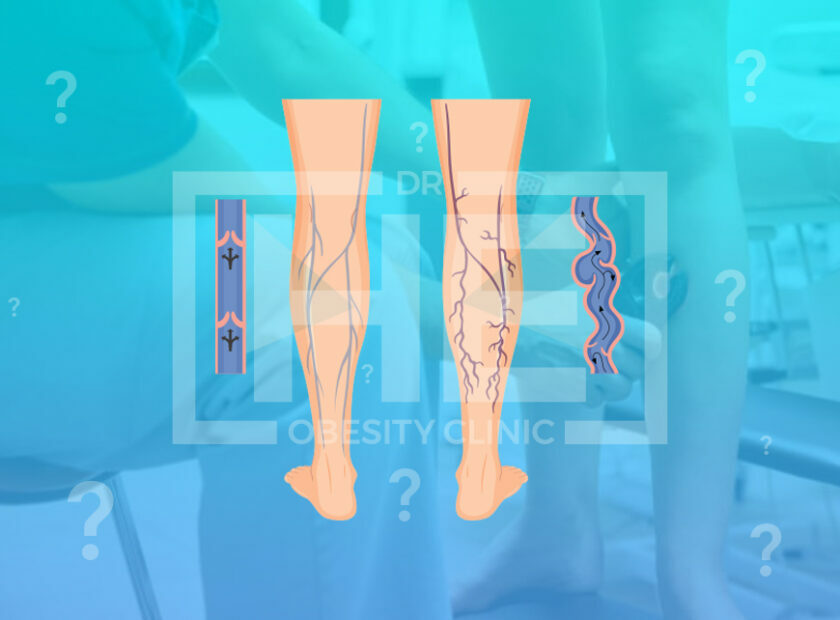
What Is the Safest Form of Bariatric Surgery? Bariatric Surgery, also known as bariatric surgery, is a unique area where a single operation can cure diabetes, hypertension, sleep apnea and many other diseases. Bariatric surgery is the only proven method of achieving long-term and permanent weight loss.
The first criterion in selecting patients for Bariatric Surgery is the body mass index. According to scientific measures, obesity has its limits. Bariatric surgery is performed by laparoscopic technique.
With the help of special camera devices connected to the monitors, the surgeon can observe the inside of the abdomen without opening a large wound in the patient’s abdomen and perform the surgical procedure more quickly and easily.
Patients who have surgery with this method experience fewer health problems than those who have surgery with traditional open surgery, less hospital stay and return to work in 1-3 weeks because the healing process is faster.
Currently, the most preferred methods of these operations performed by reducing the volume of the stomach or reducing the absorption areas of nutrients are Sleeve gastrectomy and gastric Bypass operations.
You may think that bariatric surgery is the right option for you, and you may be right. But at the decision-making stage, your doctor evaluates many factors at the same time. Bariatric surgery is not the solution for everyone who is overweight.
You may need to follow certain medical guidelines to qualify for weight loss surgery. After a thorough screening process, your doctor evaluates whether you are suitable for surgery. During this process, your doctor should also assess whether you are willing to make changes that correspond to a healthier lifestyle.
If obesity is diagnosed, that is, the body mass index is above 40, and your doctor evaluates the obesity process. Obesity, which persists for 3 or more years, may indicate the need for bariatric surgery.
Body mass index between 35 to 40 who are also suitable for bariatric surgery patients may be due to the high weight, blood pressure, risk of heart diseases, sleep apnea, many health issues such as arthritis, are taken into consideration.
Apart from these conditions, many conditions are evaluated, such as the fact that the patient is not addicted to substances such as alcohol, drugs, the absence of a hormonal disorder, the competence to adapt to possible changes, and the decision is taken at the end of this assessment. In bariatric surgery applications, preliminary analysis is important for healthy process.
Surgical operations can carry various risks due to their nature. So much so that there is no surgical operation that we cannot talk about at a small or medium level without any risk. This should not be ignored when it comes to bariatric surgery operations.
There is a risk of regaining the lost weight not only in surgical operations, but also in the case of losing weight naturally such as diet and sports. Similarly, people who maintain negative eating habits are at risk of gaining weight after surgery.
This is not an extension of the surgery, but a result related to patient attitude. In addition to these, there is no operation that can be used while changing the body to this degree, which is one hundred percent safe and has no risk.
It is also not possible to expect this type of obesity treatment, in which large amounts of weight are lost and a dramatic improvement is aimed, to be completely risk-free after surgery, the vast majority of patients stay in the hospital for only one or two nights.
Because small incisions are used for bariatric procedures, most patients have minimal pain when discharged, and it is enough to take painkillers at home for a very short period of time. Most patients can return to work two to four weeks after surgery.
When working with your primary care doctor, your specialist will give you comprehensive instructions on how to care for yourself throughout your recovery, including what to eat. For the first month, you will be able to handle only a small amount of soft food and liquids.
Gradually, you will be able to add solid foods to your diet. You’ll see that you move faster. Patients are usually seen every three months in the first postoperative year, and once a year after that.
Which Weight Loss Surgery Works the Fastest?
Which weight loss surgery works the fastest, you should read our explanations for this. The entire weight loss surgery process, from pre op testing and dieting to the surgery itself and the changes you make afterward, is geared toward long term success. Despite this, many people are curious as to which alternative will help us all lose weight the most quickly.
Sleeve Gastric Surgery
The operation reduces the overall size of your belly and allows you to always eat a small bit at a time to achieve these results. Over the course of a month, you should expect to lose weight.
While success rates vary, when combined with a healthy diet and regular exercise, you can expect to lose 50 to 70 percent of your excess weight in the first one to two years after treatment.
Lap Band
Weight loss with the lap band may be a little slower than in other options. We need to find that happy place where we can eat well while also limiting our portion sizes. This is where the band adjustments are made. Many patients appreciate the feeling of control to remove the band if necessary.
Bypass Surgery for the Stomach
Patients who have a gastric bypass lose a lot of weight than those who have a lap band or a gastric sleeve. For heavier patients, it’s a great option because they can lose up to 80% of their excess body weight.
For those with more serious health issues, such as snoring, high blood pressure, or diabetes, rapid weight loss can be extremely beneficial.




